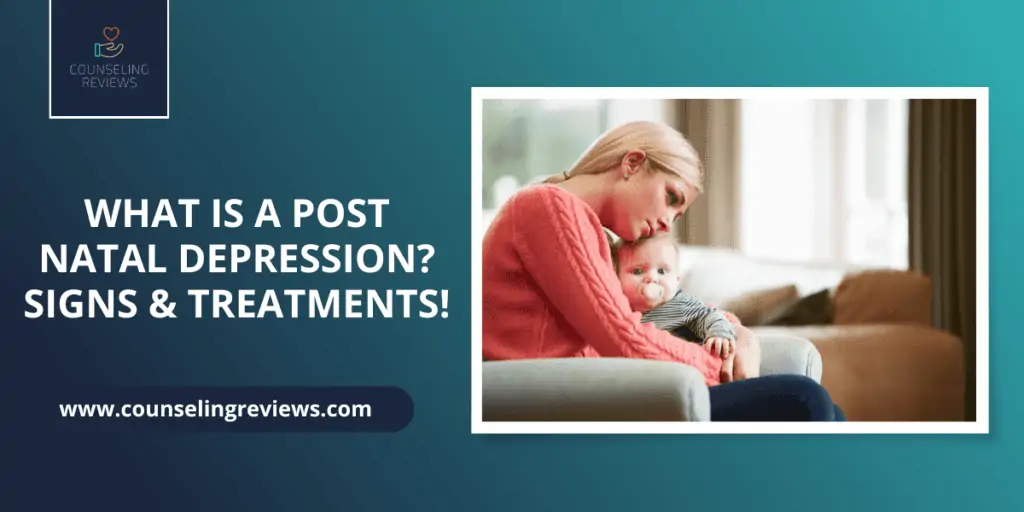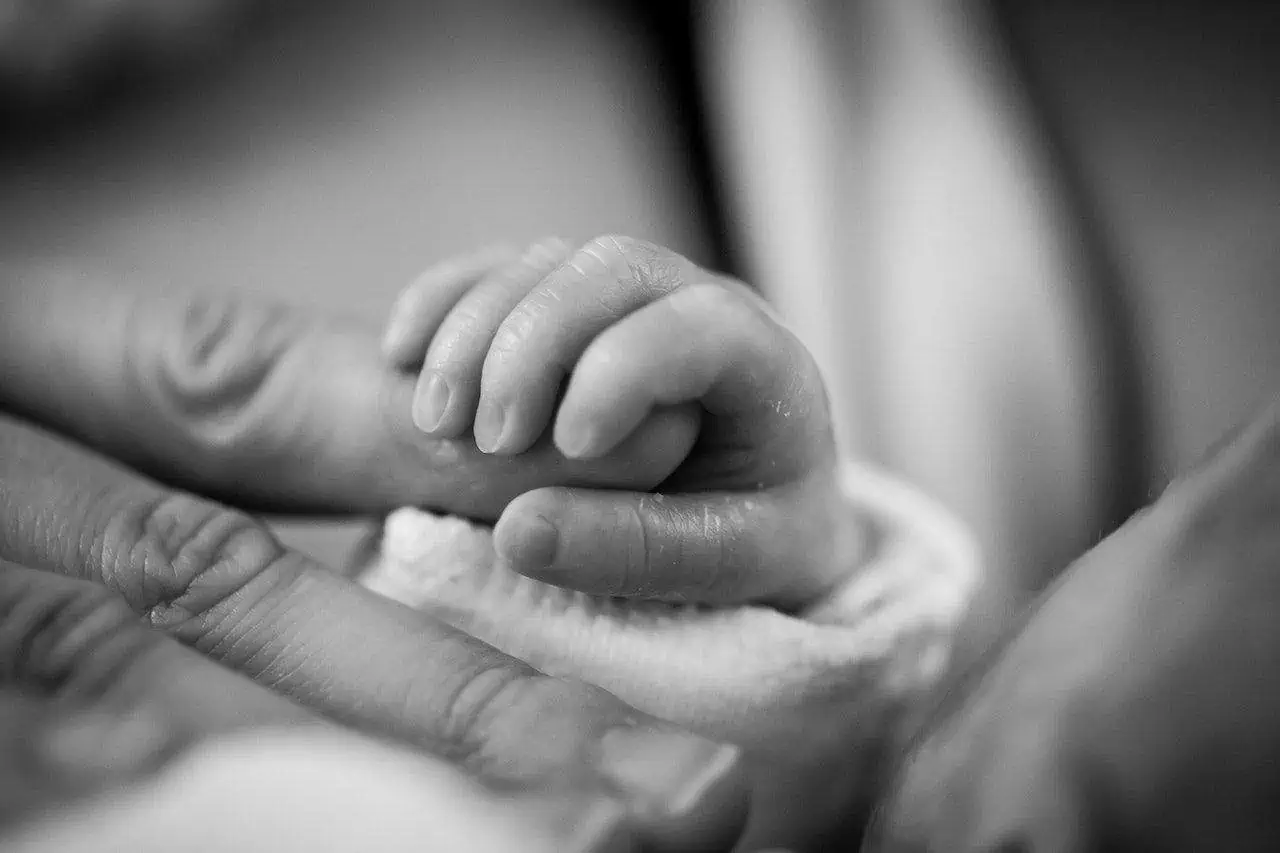Postnatal Depression (PND), also known as Postpartum Depression (PPD), can affect both moms and dads after the birth of a child. Adoptive parents can also develop postpartum depression or experience symptoms of PND. Postnatal or untreated postpartum Depression, is nothing to be ashamed of and does not make you a bad parent, it is considered a potential complication of giving birth and taking care of a new baby.
In this article, we will discuss PND symptoms, potential causes, preventative measures, treatment options, tips for your support network, and common myths. Though parents of all configurations can experience PND, to be succinct, this article uses language referring to the mother.
Postnatal Depression symptoms vs the “baby blues”
The “baby blues” are quite common for most women and occur within the first two weeks after giving birth and can last up to fourteen days. Symptoms of the “baby blues” include feeling sad, crying, severe mood swings, and fatigue. Symptoms, though uncomfortable, feel manageable.
PND symptoms on the other hand last longer than two weeks and are more severe. (Clinic, n.d.) Around 1 out of 7 women will develop PND and (Mughal, Azhar, & Siddiqui., 2022) about 10% of men will experience PND symptoms. (James F Paulson 1, 2010) Symptoms may appear as early as pregnancy and can last up to one year after giving birth.
According to the Mayo Clinic, symptoms include the following.
-
Excessive crying
-
Feeling anxious or irritable
-
Mood swings
-
Feeling sad, hopeless, and overwhelmed
-
Having thoughts of hurting the baby or yourself
-
Feeling disconnected from your baby, lacking interest in your baby
-
Having no energy or motivation
-
Significant appetite changes, eating too much or too little
-
Sleeping too little or too much
-
Feeling foggy-headed
-
Feeling self-loathsome
-
Losing interest or pleasure in activities you used to enjoy
-
Withdrawing from friends and family
Causes of PND
There appears to be no definitive cause for PND, though there are many factors that may contribute to PND. Hormone levels, family history of depression, previous mental illness or physical health challenges, and social, and psychological factors may all contribute to the development of PND.
It is important to note, however, having PND with one birth doesn’t mean it will occur with subsequent births. It is also essential to state, having a family history of PND or having previous depressive episodes is not a direct correlation to acquiring PND symptoms.
How PND affects parents
Whether the mother, the father, or both parents are experiencing PND, the relationship will be impacted. If the mom is having symptoms, the dad may feel overwhelmed and unsure as to how to be of service to both his partner and his child.
If both parents are experiencing symptoms, each may have difficulty helping the other and caring for their infant. As parents focus their attention on alleviating symptoms, the relationship may take a back seat for the interim as symptom relief becomes paramount.
The stigma surrounding PND is enormous. Many parents feel embarrassed or shameful for experiencing symptoms and may question their qualifications for parenthood. Society’s expectations that new parents should feel joyful and blessed, may make it difficult for parents to seek support and communicate their feelings.
The results of feeling stigmatized can further complicate matters as parents may feel embarrassed to seek help and support.
Preventative measures
Since there is no definitive cause of PND, there is also no definitive prevention. However, there are many things you can do to potentially limit your risk factors of developing PND.
Exercise and nutrition
It is important to eat healthy and nutritious foods during pregnancy and after birth. Likewise, it is also important to get exercise (with doctor/midwife approval) during pregnancy and after birth.
Getting exercise outdoors has the added benefit of fresh air and increasing vitamin D and serotonin (a neurotransmitter responsible for uplifting mood).
Infant education
It can be helpful to be as armed with as much education about childrearing as possible. Ultimately, you will develop your parenting instincts in time but initially, it will be helpful to learn as much as you can to limit confusion and concern.
For instance, it can be very helpful for new parents to learn about common feeding schedules, sleep cycles, infant CPR, and how many dirty diapers to expect. Educating yourself in this manner will help you feel more prepared and confident.
Preparing the home
Different cultures have various thoughts about how much preparation should happen before birth as some believe it can be bad luck to prepare.
If your culture and beliefs support the idea of preparing the home, it can help eliminate a lot of stress once the baby arrives. Order diapers, formula if using, bottles, swaddles blankets, crib, carriers, bathing mat, wash clothes, and more.
Creating a support network
It can be very helpful to have a friend help you create a “meal train” for people who want to bring your family meals during the first month postpartum. You can also ask a few close friends and family to sign up for a couple of hours a week to help you with household chores.
It can also be helpful to elect a few friends or family members to come by daily or every other day for an hour or so in order for you to take a shower or go outside for a walk.
Though some people may feel uncomfortable asking for help, take comfort in knowing most family and friends are more than happy to help, they just need to know how.
Self-help treatment options for PND
The professional recommendation for PND is to seek a medical evaluation from a doctor who is familiar with PND (most likely your OBGYN or midwife) and to seek counseling from a licensed therapist who is familiar with treating PND.
With that said, you can’t be with mental health provider or a therapist 24 hours a day and therefore, self-care is an important prescription in addition to professional treatment.
Taking any moment you can to breathe deeply and care for yourself is paramount to coping with these difficult symptoms. Some people benefit from writing their feelings in a journal as this can be very cathartic. Others may prefer to meditate, go for a walk, do yoga stretches, or read a good book. Any moment you can steal for yourself will help you to manage some of these larger feelings.
People who consider themselves extroverted will benefit tremendously from interacting with others. Whether this involves having friends coming over to visit or joining a parent group like PEP, surrounding yourself with other people can be very helpful in uplifting mood and offering perspective.
Suggestions for families and friends
The most valuable piece of advice is to listen without judgment. Parents often feel guilty about feeling PND symptoms and allowing them to air their feelings to a supportive person can be immensely valuable. You can also offer support by sharing your desire to help and asking them specifically how you can best serve their health problems and needs.
Friends and family can feel a tremendous responsibility to quickly fix the parents’ pain, but most likely, symptom remediation will take time. Every little thing you can do to help adds up, and being a part of the parents’ emotional support network is integral in supporting the entire family.
Sometimes, parents may be unaware of their symptoms. Along with a new baby comes sleep deprivation and this can impact awareness of symptoms. It is important to note, if the parents have not sought a medical evaluation for their symptoms, you can play an important role in encouraging them to do so in a nonjudgmental manner.
Untreated PND
Untreated PND symptoms can create more significant mental health problems. For instance, the longer a person remains depressed, the more difficult it can be to “come out” of the depression. If symptoms are significant and the mom feels like harming herself or her baby if the major depressive episode or illness is untreated, the outcome could be detrimental.
Overall, if symptoms last longer than two weeks, medical professionals insist (beyond a recommendation) parents be evaluated by their healthcare provider.
Postnadal Depression Myths
If PND goes untreated, it can lead to Postpartum Psychosis
Postpartum Psychosis is very rare, occurring in .1%-.2% of births (International, n.d.), and requires immediate medical attention. Postpartum Psychosis is an entity of its own and is not caused by untreated PND.
If a parent experiences PND, their bond with their child will be irreparably broken
This is a very common fear and misconception. Luckily, babies’ primary needs are survival based and though they benefit from bonding with their parents, as long as their survival needs are met, babies are rather resilient. Not to mention, there are thousands of opportunities to bond with your child throughout their lifetime.
If you had a rough first year of bonding with your child, forgive yourself and focus on creating bonds moving forward. PND is a medical condition and if you wouldn’t punish yourself for having Diabetes, don’t punish yourself for experiencing PND.
Medication to treat PND is unsafe for breastfeeding mothers
There are medications to treat PND which are safe to use for breastfeeding mothers. The FDA places very high restrictions regarding which medicines are safe to take during pregnancy and breastfeeding. If your doctor recommends medicine as appropriate treatment, you can be assured it is safe to take while breastfeeding.
PND will go away on its own
Unfortunately for many women, PND does not go away on its own and requires medical and psychotherapeutic intervention. Don’t spend another day waiting for things to get better, seek medical attention and get started on the road to recovery.
Parents experiencing PND will harm their children
Thankfully, this is rare, though media sensationalism makes it seem as though this very severe depression is a common consequence of PND. Most parents who are experiencing PND can go through the motions of caring for their baby but internally, are struggling, they just don’t feel “right.”
Postnatal Depression Support
There is a lot of support for parents experiencing PND. Treatment begins with a medical evaluation to rule out other factors and typically, psychotherapy is recommended.
According to Dr. Marceny of Centennial, CO, “SSRI medication alone accounts for a success rate of just 10% above the placebo effect, whereas medication in combination with therapy raises the success rate of treatment to 90%.”
If you don’t have a therapist you work with regularly, your medical or mental health services provider can make a referral or you can reach out to friends and family for suggestions.
Parents with an infant may struggle to find time to schedule regular therapy appointments, it can be beneficial to participate in online therapy. Online therapy, such as Betterhelp, offers a large pool of licensed therapists from which to choose a good fit for both you and your family.
Online therapy is affordable (as low as $60/session), you don’t need to commute, you can attend sessions from the comfort of your home, and childcare is not required.
Postpartum Support International is a good resource to help you locate local support in your area. They can put you in touch with medical providers familiar with PND, support groups, and individual counselors. They offer a wealth of knowledge for all symptoms of postpartum and postnatal anxiety and depression issues.
If you are feeling suicidal, please seek help immediately. You can call the National Suicide Prevention Lifeline at 1(800)-273-8255.
Postnatal Depression can feel very scary but know that treatment is highly successful and you can recover. PND does not make you a bad parent, PND is a medical condition that requires effective treatment.
Medication and/or therapy are highly effective forms of treatment, especially when used in combination. Don’t remain in the shadows of shame and fear, reach out for help now and watch your life and the life of your family improve immeasurably.
PND FAQs
No, there is no difference between postpartum and postnatal. Both terms refer to the period after childbirth, specifically focusing on the mother’s recovery and adjustment to parenthood. Postpartum and postnatal are often used interchangeably to describe the time frame following childbirth when physical and emotional changes occur.
Postpartum Depression (PPD) can occur anytime within the first year after giving birth. While it typically manifests within the first few weeks or months postpartum, it can appear as early as during pregnancy or extend up to one year after childbirth.
The “baby blues” and postnatal depression (PND) are both mood disorders that can affect new mothers after childbirth. The “baby blues” are common and usually resolve within two weeks, causing mild mood swings, sadness, and fatigue. PND, on the other hand, is more severe, lasting longer than two weeks, and includes symptoms of postnatal depression, such as excessive crying, feelings of hopelessness, panic attacks and thoughts of harming oneself or the baby.






